Subscribe to our YouTube channel for the latest videos, updates, and tips.
Home | About Us | Contact Us | Privacy | Math Blog
Problems on Principle of Mathematical Induction
Solved Problems on Principle of Mathematical Induction are shown here to prove Mathematical Induction.
Problems on Principle of Mathematical Induction
1. Using the principle of mathematical induction, prove that
1² + 2² + 3² + ..... + n² = (1/6){n(n + 1)(2n + 1} for all n ∈ N.
Solution:
Let the given statement be P(n). Then,
P(n): 1² + 2² + 3² + ..... +n² = (1/6){n(n + 1)(2n + 1)}.
Putting n =1 in the given statement, we get
LHS = 1² = 1 and RHS = (1/6) × 1 × 2 × (2 × 1 + 1) = 1.
Therefore LHS = RHS.
Thus, P(1) is true.
Let P(k) be true. Then,
P(k): 1² + 2² + 3² + ..... + k² = (1/6){k(k + 1)(2k + 1)}.
Now, 1² + 2² + 3² + ......... + k² + (k + 1)²
= (1/6) {k(k + 1)(2k + 1) + (k + 1)²
= (1/6){(k + 1).(k(2k + 1)+6(k + 1))}
= (1/6){(k + 1)(2k² + 7k + 6})
= (1/6){(k + 1)(k + 2)(2k + 3)}
= 1/6{(k + 1)(k + 1 + 1)[2(k + 1) + 1]}
⇒ P(k + 1): 1² + 2² + 3² + ….. + k² + (k+1)²
= (1/6){(k + 1)(k + 1 + 1)[2(k + 1) + 1]}
⇒ P(k + 1) is true, whenever P(k) is true.
Thus, P(1) is true and P(k + 1) is true, whenever P(k) is true.
Hence, by the principle of mathematical induction, P(n) is true for all n ∈ N.
2. By using mathematical induction prove that the given equation is true for all positive integers.
1 x 2 + 3 x 4 + 5 x 6 + …. + (2n - 1) x 2n = n(n+1)(4n−1)3
Solution:
From the statement formula
When n = 1,
LHS =1 x 2 = 2
RHS = 1(1+1)(4x1−1)3 = 63 = 2
Hence it is proved that P (1) is true for the equation.
Now we assume that P (k) is true or 1 x 2 + 3 x 4 + 5 x 6 + …. + (2k - 1) x 2k = k(k+1)(4k−1)3.
For P(k + 1)
LHS = 1 x 2 + 3 x 4 + 5 x 6 + …. + (2k - 1) x 2k + (2(k + 1) - 1) x 2(k + 1)
= k(k+1)(4k−1)3 + (2(k + 1) - 1) x 2(k + 1)
= (k+1)3(4k2 - k + 12 k + 6)
= (k+1)(4k2+8k+3k+6)3
= (k+1)(k+2)(4k+3)3
= (k+1)((k+1)+1)(4(k+1)−1)3 = RHS for P (k+1)
Now it is proved that P (k + 1) is also true for the equation.
So the given statement is true for all positive integers.
Problems on Principle of Mathematical Induction
3. Using the principle of mathematical induction, prove that
1 ∙ 2 + 2 ∙ 3 + 3 ∙ 4 + ..... + n(n + 1) = (1/3){n(n + 1)(n + 2)}.
Solution:
Let the given statement be P(n). Then,
P(n): 1 ∙ 2 + 2 ∙ 3 + 3 ∙ 4 + ..... + n(n + 1) = (1/3){n(n + 1)(n + 2)}.
Thus, the given statement is true for n = 1, i.e., P(1) is true.
Let P(k) be true. Then,
P(k): 1 ∙ 2 + 2 ∙ 3 + 3 ∙ 4 + ..... + k(k + 1) = (1/3){k(k + 1)(k + 2)}.
Now, 1 ∙ 2 + 2 ∙ 3 + 3 ∙ 4 +...+ k(k + 1) + (k + 1)(k + 2)
= (1 ∙ 2 + 2 ∙ 3 + 3 ∙ 4 + ....... + k(k + 1)) + (k + 1)(k + 2)
= (1/3) k(k + 1)(k + 2) + (k + 1)(k + 2) [using (i)]
= (1/3) [k(k + 1)(k + 2) + 3(k + 1)(k + 2)
= (1/3){(k + 1)(k + 2)(k + 3)}
⇒ P(k + 1): 1 ∙ 2 + 2 ∙ 3 + 3 ∙ 4 +......+ (k + 1)(k + 2)
= (1/3){k + 1 )(k + 2)(k +3)}
⇒ P(k + 1) is true, whenever P(k) is true.
Thus, P(1) is true and P(k + 1)is true, whenever P(k) is true.
Hence, by the principle of mathematical induction, P(n) is true for all
values of ∈ N.
Problems on Principle of Mathematical Induction
4. By using mathematical induction prove that the given equation is true for all positive integers.
2 + 4 + 6 + …. + 2n = n(n+1)
Solution:
From the statement formula
When n = 1 or P (1),
LHS = 2
RHS =1 × 2 = 2
So P (1) is true.
Now we assume that P (k) is true or 2 + 4 + 6 + …. + 2k = k(k + 1).
For P(k + 1),
LHS = 2 + 4 + 6 + …. + 2k + 2(k + 1)
= k(k + 1) + 2(k + 1)
= (k + 1) (k + 2)
= (k + 1) ((k + 1) + 1) = RHS for P(k+1)
Now it is proved that P(k+1) is also true for the equation.
So the given statement is true for all positive integers.
5. Using the principle of mathematical induction, prove that
1 ∙ 3 + 3 ∙ 5 + 5 ∙ 7 +.....+ (2n - 1)(2n + 1) = (1/3){n(4n² + 6n - 1).
Solution:
Let the given statement be P(n). Then,
P(n): 1 ∙ 3 + 3 ∙ 5 + 5 ∙ 7 +...... + (2n - 1)(2n + 1)= (1/3)n(4n² + 6n - 1).
When n = 1, LHS = 1 ∙ 3 = 3 and RHS = (1/3) × 1 × (4 × 1² + 6 × 1 - 1)
= {(1/3) × 1 × 9} = 3.
LHS = RHS.
Thus, P(1) is true.
Let P(k) be true. Then,
P(k): 1 ∙ 3 + 3 ∙ 5 + 5 ∙ 7 + ….. + (2k - 1)(2k + 1) = (1/3){k(4k² + 6k - 1) ......(i)
Now,
1 ∙ 3 + 3 ∙ 5 + 5 ∙ 7 + …….. + (2k - 1)(2k + 1) + {2k(k + 1) - 1}{2(k + 1) + 1}
= {1 ∙ 3 + 3 ∙ 5 + 5 ∙ 7 + ………… + (2k - 1)(2k + 1)} + (2k + 1)(2k + 3)
= (1/3) k(4k² + 6k - 1) + (2k + 1)(2k + 3) [using (i)]
= (1/3) [(4k³ + 6k² - k) + 3(4k² + 8k + 3)]
= (1/3)(4k³ + 18k² + 23k + 9)
= (1/3){(k + 1)(4k² + 14k + 9)}
= (1/3)[k + 1){4k(k + 1) ² + 6(k + 1) - 1}]
⇒ P(k + 1): 1 ∙ 3 + 3 ∙ 5 + 5 ∙ 7 + ..... + (2k + 1)(2k + 3)
= (1/3)[(k + 1){4(k + 1)² + 6(k + 1) - 1)}]
⇒ P(k + 1) is true, whenever P(k) is true.
Thus, P(1) is true and P(k + 1) is true, whenever P(k) is true.
Hence, by the principle of mathematical induction, P(n) is true for all n ∈ N.
More Problems on Principle of Mathematical Induction
6. By using mathematical induction prove that the given equation is true for all positive integers.
2 + 6 + 10 + ….. + (4n - 2) = 2n2
Solution:
From the statement formula
When n = 1 or P(1),
LHS = 2
RHS = 2 × 12 = 2
So P(1) is true.
Now we assume that P (k) is true or 2 + 6 + 10 + ….. + (4k - 2) = 2k2
For P (k + 1),
LHS = 2 + 6 + 10 + ….. + (4k - 2) + (4(k + 1) - 2)
= 2k2 + (4k + 4 - 2)
= 2k2 + 4k + 2
= (k+1)2
= RHS for P(k+1)
Now it is proved that P(k+1) is also true for the equation.
So the given statement is true for all positive integers.
7.
Using the principle of mathematical induction, prove that
1/(1 ∙ 2) + 1/(2 ∙ 3) + 1/(3 ∙ 4) + ..... + 1/{n(n + 1)} = n/(n + 1)
Solution:
Let the given statement be P(n). Then,
P(n): 1/(1 ∙ 2) + 1/(2 ∙ 3) + 1/(3 ∙ 4) + ..... + 1/{n(n + 1)} = n/(n + 1).
Putting n = 1 in the given statement, we get
LHS= 1/(1 ∙ 2) = and RHS = 1/(1 + 1) = 1/2.
LHS = RHS.
Thus, P(1) is true.
Let P(k) be true. Then,
P(k): 1/(1 ∙ 2) + 1/(2 ∙ 3) + 1/(3 ∙ 4) + ..... + 1/{k(k + 1)} = k/(k + 1) ..…(i)
Now 1/(1 ∙ 2) + 1/(2 ∙ 3) + 1/(3 ∙ 4) + ..... + 1/{k(k + 1)} + 1/{(k + 1)(k + 2)}
[1/(1 ∙ 2) + 1/(2 ∙ 3) + 1/(3 ∙ 4) + ..... + 1/{k(k + 1)}] + 1/{(k + 1)(k + 2)}
= k/(k + 1)+1/{ (k + 1)(k + 2)}.
{k(k + 2) + 1}/{(k + 1)²/[(k + 1)k + 2)] using …(ii)
= {k(k + 2) + 1}/{(k + 1)(k + 2}
= {(k + 1)² }/{(k + 1)(k + 2)}
= (k + 1)/(k + 2) = (k + 1)/(k + 1 + 1)
⇒ P(k + 1): 1/(1 ∙ 2) + 1/(2 ∙ 3) + 1/(3 ∙ 4) + ……… + 1/{ k(k + 1)} + 1/{(k + 1)(k + 2)}
= (k + 1)/(k + 1 + 1)
⇒ P(k + 1) is true, whenever P(k) is true.
Thus, P(1) is true and P(k + 1)is true, whenever P(k) is true.
Hence, by the principle of mathematical induction, P(n) is true for all n ∈ N.
Problems on Principle of Mathematical Induction
8. Using the principle of mathematical induction, prove that
{1/(3 ∙ 5)} + {1/(5 ∙ 7)} + {1/(7 ∙ 9)} + ….... + 1/{(2n + 1)(2n + 3)} = n/{3(2n + 3)}.
Solution:
Let the given statement be P(n). Then,
P(n): {1/(3 ∙ 5) + 1/(5 ∙ 7) + 1/(7 ∙ 9) + ……. + 1/{(2n + 1)(2n + 3)} = n/{3(2n + 3).
Putting n = 1 in the given statement, we get
and LHS = 1/(3 ∙ 5) = 1/15 and RHS = 1/{3(2 × 1 + 3)} = 1/15.
LHS = RHS
Thus , P(1) is true.
Let P(k) be true. Then,
P(k): {1/(3 ∙ 5) + 1/(5 ∙ 7) + 1/(7 ∙ 9) + …….. + 1/{(2k + 1)(2k + 3)} = k/{3(2k + 3)} ….. (i)
Now, 1/(3 ∙ 5) + 1/(5 ∙ 7) + ..…… + 1/[(2k + 1)(2k + 3)] + 1/[{2(k + 1) + 1}2(k + 1) + 3
= {1/(3 ∙ 5) + 1/(5 ∙ 7) + ……. + [1/(2k + 1)(2k + 3)]} + 1/{(2k + 3)(2k + 5)}
= k/[3(2k + 3)] + 1/[2k + 3)(2k + 5)] [using (i)]
= {k(2k + 5) + 3}/{3(2k + 3)(2k + 5)}
= (2k² + 5k + 3)/[3(2k + 3)(2k + 5)]
= {(k + 1)(2k + 3)}/{3(2k + 3)(2k + 5)}
= (k + 1)/{3(2k + 5)}
= (k + 1)/[3{2(k + 1) + 3}]
= P(k + 1): 1/(3 ∙ 5) + 1/(5 ∙ 7) + …….. + 1/[2k + 1)(2k + 3)] + 1/[{2(k + 1) + 1}{2(k + 1) + 3}]
= (k + 1)/{3{2(k + 1) + 3}]
⇒ P(k + 1) is true, whenever P(k) is true.
Thus, P(1) is true and P(k + 1) is true, whenever P(k) is true.
Hence, by the principle of mathematical induction, P(n) is true for n ∈ N.
Problems on Principle of Mathematical Induction
9. By induction prove that 3n - 1 is divisible by 2 is true for all positive integers.
Solution:
When n = 1, P(1) = 31 - 1 = 2 which is divisible by 2.
So P(1) is true.
Now we assume that P(k) is true or 3k - 1 is divisible by 2.
When P(k + 1),
3k + 1 - 1= 3k x 3 - 1 = 3k x 3 - 3 + 2 = 3(3k - 1) + 2
As (3k - 1) and 2 both are divisible by 2, it is proved that divisible by 2 is true for all positive integers.
10. Using the principle of mathematical induction, prove that
1/(1 ∙ 2 ∙ 3) + 1/(2 ∙ 3 ∙ 4) + …….. + 1/{n(n + 1)(n + 2)} = {n(n + 3)}/{4(n + 1)(n + 2)} for all n ∈ N.
Solution:
Let P (n): 1/(1 ∙ 2 ∙ 3) + 1/(2 ∙ 3 ∙ 4) + ……. + 1/{n(n + 1)(n + 2)} = {n(n + 3)}/{4(n + 1)(n + 2)} .
Putting n = 1 in the given statement, we get
LHS = 1/(1 ∙ 2 ∙ 3) = 1/6 and RHS = {1 × (1 + 3)}/[4 × (1 + 1)(1 + 2)] = ( 1 × 4)/(4 × 2 × 3) = 1/6.
Therefore LHS = RHS.
Thus, the given statement is true for n = 1, i.e., P(1) is true.
Let P(k) be true. Then,
P(k): 1/(1 ∙ 2 ∙ 3) + 1/(2 ∙ 3 ∙ 4) + ……... + 1/{k(k + 1)(k + 2)} = {k(k + 3)}/{4(k + 1)(k + 2)}. …….(i)
Now, 1/(1 ∙ 2 ∙ 3) + 1/(2 ∙ 3 ∙ 4) + ………….. + 1/{k(k + 1)(k + 2)} + 1/{(k + 1)(k + 2)(k + 3)}
= [1/(1 ∙ 2 ∙ 3) + 1/(2 ∙ 3 ∙ 4) + ………..…. + 1/{ k(k + 1)(k + 2}] + 1/{(k + 1)(k + 2)(k + 3)}
= [{k(k + 3)}/{4(k + 1)(k + 2)} + 1/{(k + 1)(k + 2)(k + 3)}]
[using(i)]
= {k(k + 3)² + 4}/{4(k + 1)(k + 2)(k + 3)}
= (k³ + 6k² + 9k + 4)/{4(k + 1)(k + 2)(k + 3)}
= {(k + 1)(k + 1)(k + 4)}/{4 (k + 1)(k + 2)(k + 3)}
= {(k + 1)(k + 4)}/{4(k + 2)(k + 3)
⇒ P(k + 1): 1/(1 ∙ 2 ∙ 3) + 1/(2 ∙ 3 ∙ 4) + ……….….. + 1/{(k + 1)(k + 2)(k + 3)}
= {(k + 1)(k + 2)}/{4(k + 2)(k + 3)}
⇒ P(k + 1) is true, whenever P(k) is true.
Thus, P(1) is true and P(k + 1) is true, whenever P(k) is true.
Hence, by the principle of mathematical induction, P(n) is true for all n ∈ N.
Problems on Principle of Mathematical Induction
11. By induction prove that n2 - 3n + 4 is even and it is true for all positive integers.
Solution:
When n = 1, P (1) = 1 - 3 + 4 = 2 which is an even number.
So P (1) is true.
Now we assume that P (k) is true or k2 - 3k + 4 is an even number.
When P (k + 1),
(k + 1)2 - 3(k + 1) + 4
= k2 + 2k + 1 - 3k + 3 + 4
= k2 - 3k + 4 + 2(k + 2)
As k2 - 3k + 4 and 2(k + 2) both are even, there sum also will be an even number.
So it is proved that n2 - 3n + 4 is even is true for all positive integers.
12. Using the Principle of mathematical induction, prove that
{1 - (1/2)}{1 - (1/3)}{1 - (1/4)} ….... {1 - 1/(n + 1)} = 1/(n + 1) for all n ∈ N.
Solution:
Let the given statement be P(n). Then,
P(n): {1 - (1/2)}{1 - (1/3)}{1 - (1/4)} ….... {1 - 1/(n + 1)} = 1/(n + 1).
When n = 1, LHS = {1 – (1/2)} = ½ and RHS = 1/(1 + 1) = ½.
Therefore LHS = RHS.
Thus, P(1) is true.
Let P(k) be true. Then,
P(k): {1 - (1/2)}{1 - (1/3)}{1 - (1/4)} ….... [1 - {1/(k + 1)}] = 1/(k + 1)
Now, [{1 - (1/2)}{1 - (1/3)}{1 - (1/4)} ….... [1 - {1/(k + 1)}] ∙ [1 – {1/(k + 2)}]
= [1/(k + 1)] ∙ [{(k + 2 ) - 1}/(k + 2)}]
= [1/(k + 1)] ∙ [(k + 1)/(k + 2)]
= 1/(k + 2)
Therefore p(k + 1): [{1 - (1/2)}{1 - (1/3)}{1 - (1/4)} ….... [1 - {1/(k + 1)}] = 1/(k + 2)
⇒ P(k + 1) is true, whenever P(k) is true.
Thus, P(1) is true and P(k + 1) is true, whenever P(k) is true.
Hence, by the principle of mathematical induction, P(n) is true for all n ∈ N.
Problems on Principle of Mathematical Induction
● Mathematical Induction
- Mathematical Induction
- Problems on Principle of Mathematical Induction
- Proof by Mathematical Induction
- Induction Proof
11 and 12 Grade Math
From Problems on Principle of Mathematical Induction to HOME PAGE
Didn't find what you were looking for? Or want to know more information about Math Only Math. Use this Google Search to find what you need.
Recent Articles
-
5th Grade Circle Worksheet | Free Worksheet with Answer |Practice Math
Jul 11, 25 02:14 PM
In 5th Grade Circle Worksheet you will get different types of questions on parts of a circle, relation between radius and diameter, interior of a circle, exterior of a circle and construction of circl… -
Construction of a Circle | Working Rules | Step-by-step Explanation |
Jul 09, 25 01:29 AM
Construction of a Circle when the length of its Radius is given. Working Rules | Step I: Open the compass such that its pointer be put on initial point (i.e. O) of ruler / scale and the pencil-end be… -
Combination of Addition and Subtraction | Mixed Addition & Subtraction
Jul 08, 25 02:32 PM
We will discuss here about the combination of addition and subtraction. The rules which can be used to solve the sums involving addition (+) and subtraction (-) together are: I: First add -
Addition & Subtraction Together |Combination of addition & subtraction
Jul 08, 25 02:23 PM
We will solve the different types of problems involving addition and subtraction together. To show the problem involving both addition and subtraction, we first group all the numbers with ‘+’ and… -
5th Grade Circle | Radius, Interior and Exterior of a Circle|Worksheet
Jul 08, 25 09:55 AM
A circle is the set of all those point in a plane whose distance from a fixed point remains constant. The fixed point is called the centre of the circle and the constant distance is known

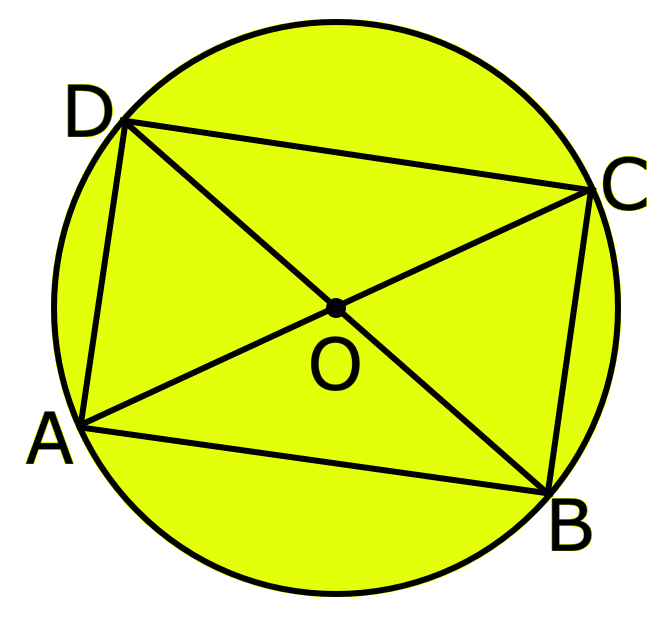
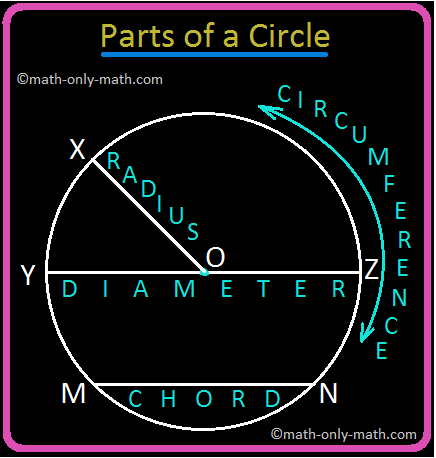
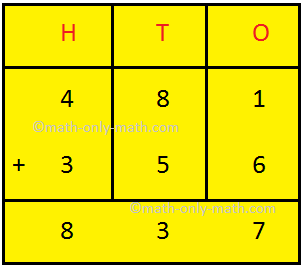
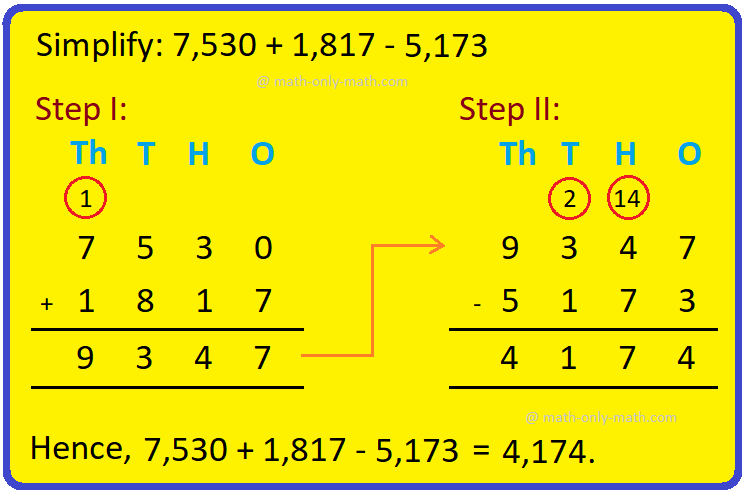
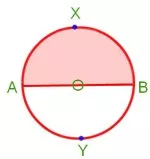
New! Comments
Have your say about what you just read! Leave me a comment in the box below. Ask a Question or Answer a Question.